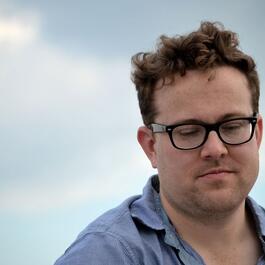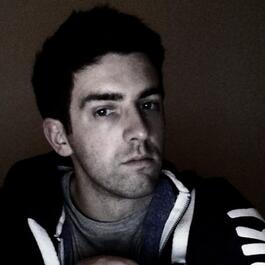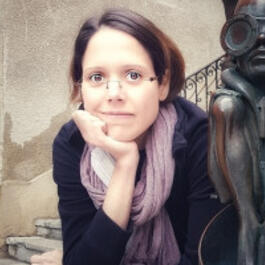
New Books in Technology
This podcast is a channel on the New Books Network. The New Books Network is an academic audio library dedicated to public education. In each episode you will hear scholars discuss their recently published research with another expert in their field. Discover our 150+ channels and browse our 28,000+ episodes on our website: newbooksnetwork.com Subscribe to our free weekly Substack newsletter to get informative, engaging content straight to your inbox: https://newbooksnetwork.substack.com/ Follow us on Instagram and Bluesky to learn about more our latest interviews: @newbooksnetwork Support our show by becoming a premium member! https://newbooksnetwork.supportingcast.fm/technology
Show episodes
Barcodes are about as ordinary as an object can be. Billions of them are scanned each day and they impact everything from how we shop to how we travel to how the global economy is managed. But few people likely give them more than a second thought. In a way, the barcode's ordinariness is the ultimate symbol of its succ
Jeremy Black's book A History of Artillery (Rowman & Littlefield, 2023) traces the development of artillery through the ages, providing a thorough study of these weapons. From its earliest recorded use in battle over a millennium ago, up to the recent Gulf War, Balkan, and Afghanistan conflicts, artillery has often bee
A concise overview of fertility technology—its history, practical applications, and ethical and social implications around the world. In the late 1850s, a physician in New York City used a syringe and glass tube to inject half a drop of sperm into a woman’s uterus, marking the first recorded instance of artificial inse

Luis Felipe Murillo, "Common Circuits: Hacking Alternative Technological Futures" (Stanford UP, 2025)
A digital world in relentless movement—from artificial intelligence to ubiquitous computing—has been captured and reinvented as a monoculture by Silicon Valley "big tech" and venture capital firms. Yet very little is discussed in the public sphere about existing alternatives. Based on long-term field research across Sa

Chaim Gingold, "Building SimCity: How to Put the World in a Machine" (MIT Press, 2024)
Building SimCity explores the history of computer simulation by chronicling one of the most influential simulation games ever made: SimCity. As author Chaim Gingold explains, Will Wright, the visionary designer behind the urban planning game, created SimCity in part to learn about cities, appropriating ideas from tradi
Peoples & Things host, Lee Vinsel, talks with Thomas Haigh, Professor and Chair of History and affiliate of the Department of Computer Science at University of Wisconsin-Milwaukee, about his forthcoming book on the history of artificial intelligence. The book, which has had the working title _Artificial Intelligence: T





